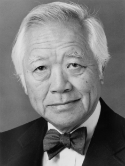Varying features of early age-of-onset "sporadic" and hereditary nonpolyposis colorectal cancer patients Conference Paper
| Authors: | Guillem, J. G.; Puig-La Calle, J. Jr; Cellini, C.; Murray, M.; Ng, J.; Fazzari, M.; Paty, P. B.; Quan, S. H. Q.; Wong, W. D.; Cohen, A. M. |
| Title: | Varying features of early age-of-onset "sporadic" and hereditary nonpolyposis colorectal cancer patients |
| Conference Title: | 97th Annual Meeting of the American Society of Colon and Rectal Surgeons |
| Abstract: | PURPOSE: Although the criteria for clinical diagnosis of hereditary nonpolyposis colorectal cancer are not fully agreed on, young age seems to be a common trait. The purpose of this study is to identify clinicopathologic features of hereditary nonpolyposis colorectal cancer in early age-of-onset colorectal cancer patients stratified as a function of family cancer history. METHODS: Two hundred thirty consecutive colorectal cancer patients 40 years or older at time of diagnosis were registered into an ongoing database during a ten-year period. Accurate family history was obtained via medical records, telephone calls, and questionnaires on 146 patients. According to extent of family history of cancer, patients were stratified into seven groups: 1) fulfilling Amsterdam criteria, 2) fulfilling less strict criteria, 3) having at least one first-degree relative with colorectal cancer, 4) having at least one distant relative with colorectal cancer, 5) having at least one first- degree relative with any cancer, 6) having at least one distant relative with any cancer, 7) having no family history of cancer. RESULTS: Twenty-two of 146 patients fulfilled Amsterdam and less strict hereditary nonpolyposis colorectal cancer criteria (15 percent). These hereditary nonpolyposis colorectal cancer patients were significantly younger (31 vs. 35 years; P = 0.0003) and had more metachronous colorectal cancer (27 percent vs. 2 percent; P = 0.007) and less colorectal cancer with nodal or metastatic spread than the non-hereditary nonpolyposis colorectal cancer patients (35 percent vs. 65 percent; P = 0.01). CONCLUSION: Precise familial cancer assessment in early age-of-onset colorectal cancer increases the yield of hereditary nonpolyposis colorectal cancer diagnosis. Because of the frequent development of metachronous colorectal cancer and favorable prognosis, extensive rather than segmental surgery should be considered in early age- of-onset colorectal cancer patients belonging to hereditary nonpolyposis colorectal cancer families. |
| Keywords: | adolescent; adult; middle aged; cancer surgery; survival rate; major clinical study; clinical feature; histopathology; conference paper; colorectal cancer; diagnosis, differential; colorectal neoplasms; family history; colorectal surgery; familial cancer; neoplasms, second primary; onset age; age of onset; colorectal neoplasms, hereditary nonpolyposis; family; hereditary nonpolyposis colorectal cancer; prophylactic surgery; humans; prognosis; human; male; female; early age-of-onset colorectal cancer |
| Journal Title | Diseases of the Colon and Rectum |
| Volume: | 42 |
| Issue: | 1 |
| Conference Dates: | 1998 May 3-7 |
| Conference Location: | San Antonio, TX |
| ISBN: | 0012-3706 |
| Publisher: | Lippincott Williams & Wilkins |
| Date Published: | 1999-01-01 |
| Start Page: | 36 |
| End Page: | 42 |
| Language: | English |
| DOI: | 10.1007/bf02235180 |
| PUBMED: | 10211518 |
| PROVIDER: | scopus |
| DOI/URL: | |
| Notes: | Conference Paper -- Export Date: 16 August 2016 -- Source: Scopus |
Altmetric
Citation Impact
BMJ Impact Analytics
Related MSK Work









